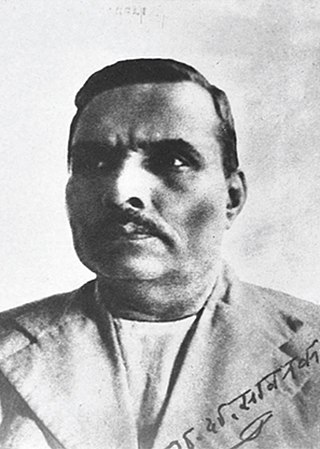Top Qs
Timeline
Chat
Perspective
Ganesh Damodar Savarkar
Marathi revolutionary (1879–1945) From Wikipedia, the free encyclopedia
Remove ads
Ganesh Dāmodar Sāvarkar (13 June 1879[1] – 16 March 1945), also called Babarao Savarkar, was an Indian revolutionary, freedom fighter and writer. He was the founder of the Abhinav Bharat Society along with Vinayak Damodar Savarkar.
Remove ads
Early life
Ganesh was the eldest sibling of the Savarkar brothers Vinayak, and Narayan, they also had a sister Mainabai, who was the penultimate child of their parents. Ganesh took responsibility of developing and influencing his brothers’ since their childhood. His parents' death laid the liability of his family at an age of twenty years.[1]
Independence activism

He led an armed movement against the British colonial government in India, he was sentenced to transportation for life as a result. The then collector of Nasik, A. M. T. Jackson was assassinated by Anant Laxman Kanhere in retaliation.[2]: 117
M. J. Akbar writes that "The five friends who started the RSS were B. S. Moonje, L. V. Paranjpe, Dr. Tholkar, Babarao Savarkar and Hedgewar himself."[3]: 306
Remove ads
References
Wikiwand - on
Seamless Wikipedia browsing. On steroids.
Remove ads

